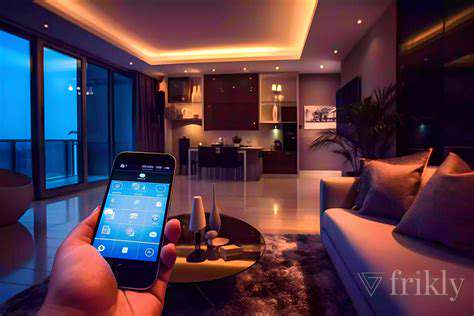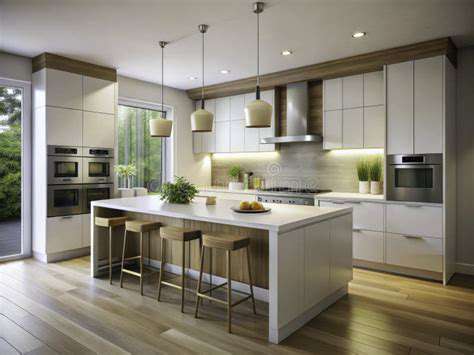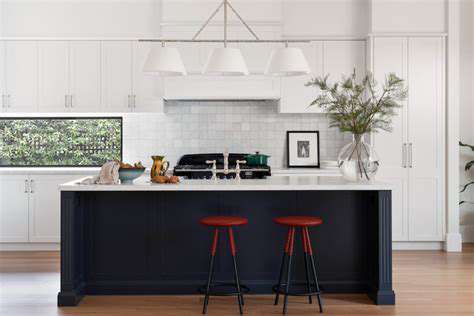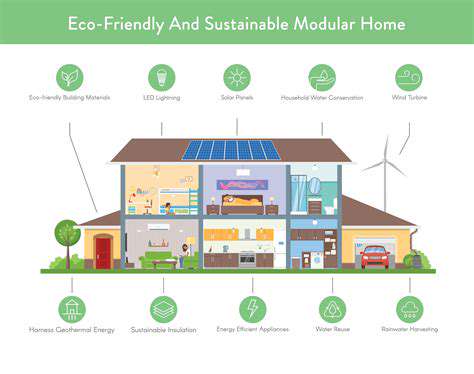Affordable Guide to Full Package Smart Lighting for Homeowners
For those just dipping their toes into the world of smart lighting, smart bulbs are a fantastic and affordable starting point. These small, energy-efficient replacements for traditional incandescent bulbs often come with a wide range of compatibility with popular smart home hubs, allowing you to control the lights from your phone, tablet, or smart speaker. Many budget-friendly options offer dimming capabilities, color temperature adjustments, and even pre-programmed schedules, allowing for a significant upgrade in lighting control without breaking the bank.
A key advantage of smart bulbs is their ease of installation. Simply replace your existing bulbs, download the relevant app, and you're ready to experience the convenience of smart lighting. Often, these bulbs offer significant energy savings compared to traditional incandescent bulbs, which translates to a quicker return on investment over time.
Wireless Dimmers: Simple Control, Maximum Impact
Wireless dimmers provide a more comprehensive approach to smart lighting control than individual smart bulbs, often controlling multiple lights within a room or zone. These systems are frequently more affordable than complete smart lighting kits, and their installation is typically straightforward, often requiring only the addition of a smart dimmer switch or a few clips to existing fixtures.
The added benefit of wireless dimmers is the ability to create more nuanced lighting environments. They often allow for fine-tuned dimming, providing a range of brightness options to perfectly suit your needs and mood. This versatility can be especially valuable in spaces like bedrooms or living rooms where different levels of illumination are required throughout the day.
Smart Lighting Strips: Accent Lighting on a Budget
Smart lighting strips are a cost-effective way to introduce ambient lighting and add a touch of sophistication to any room. These strips typically come with self-adhesive backing, making installation remarkably easy. Their slim profile also makes them an ideal choice for highlighting architectural details or adding a touch of visual interest to a room without overly cluttering the space.
Many affordable smart lighting strip kits allow for customization through color and brightness control. This flexibility enables you to subtly change the ambiance of a room or to create a dynamic atmosphere perfect for parties or special occasions. They can be integrated with other smart home devices for a truly cohesive smart home experience.
DIY Smart Lighting Solutions: Maximizing Your Budget
For those seeking even more budget-friendly options, DIY smart lighting solutions can be a compelling choice. These solutions often involve using smart hubs and third-party compatible devices, allowing you to create custom lighting systems without the hefty price tag of pre-packaged kits.
While a bit more involved in terms of setup, DIY smart lighting offers considerable flexibility. You can choose components that best fit your needs and desired functionality. This approach allows you to prioritize features like color temperature control or custom lighting schedules, ultimately tailoring the system to your exact preferences.
Integration with Existing Fixtures: Seamless Upgrades
Rather than replacing entire light fixtures, many smart lighting solutions allow for integration with existing systems. This approach is particularly attractive for those seeking a smart lighting upgrade without major renovations or extensive costs. Often, smart bulbs, dimmers, or even smart plugs can be easily integrated with your existing fixtures, providing an immediate upgrade in lighting control and convenience.
This approach is ideal for those with established homes or apartments, as it allows them to transition to smart lighting without incurring substantial expenses or disruptions to their current setup. They are often compatible with a range of existing light fixture types and styles, offering adaptability to a broad range of situations.
Smart Lighting Apps and Control: User-Friendly Interfaces
A crucial aspect of any smart lighting system is the user interface. A well-designed app allows for intuitive control and customization of your smart lighting setup. Many budget-friendly smart lighting options offer apps that are straightforward and easy to navigate, even for those new to smart home technology. These apps often provide features such as scheduling, dimming control, and color temperature adjustment.
Future-Proofing Your Home: Long-Term Value
Investing in smart lighting is not just about immediate convenience, it's about future-proofing your home. As smart home technology continues to evolve, a well-chosen smart lighting system can adapt to new features and functionalities. By choosing budget-conscious smart lighting solutions, you ensure that your home remains adaptable to the changing landscape of technology without exorbitant costs. Smart lighting can also enhance the resale value of your property, making it a long-term investment with potential returns.
Essential Features to Look for in an Affordable Smart Lighting System

Performance
A crucial aspect of any software or hardware product is its performance. A strong performance ensures smooth operation and responsiveness, vital for productivity and user experience. Poor performance can lead to frustrating delays and ultimately, dissatisfaction. Consider factors like processing speed, memory capacity, and the software's ability to handle multiple tasks concurrently when evaluating performance.
Ideally, the product should handle demanding tasks without significant slowdowns or glitches. Assessing performance benchmarks and user reviews can provide valuable insights into how a product performs in real-world scenarios. This crucial aspect significantly impacts the overall user experience and satisfaction.
Reliability
Reliability is paramount. A dependable system consistently delivers expected results without unexpected errors or crashes. This is essential for maintaining productivity and avoiding costly downtime. Look for data on the system's uptime, error rates, and the strategies employed to mitigate failures.
A reliable product ensures that your investment is protected. You want a product that you can count on to function as expected, consistently. Reliability is built on robust design, thorough testing, and proactive maintenance.
Scalability
As your needs evolve, the product should grow with you. Scalability is the ability to adapt to increased workloads and data volumes without compromising performance. This is important for future-proofing your investment. Consider factors like the product's capacity to handle more users, more data, or more complex tasks. Evaluate the potential for future upgrades and expansions.
A scalable product saves you the hassle and expense of replacing your system with a new one when the current one is no longer sufficient. It allows you to grow your operations without major disruptions and maintain optimal performance.
Security
In today's digital landscape, security is non-negotiable. A secure product protects sensitive data and prevents unauthorized access. Look for robust security features, like encryption, authentication protocols, and regular security updates. Security is vital to maintain trust and protect valuable information.
Thorough security measures mitigate risks and safeguard against potential cyber threats. A product lacking robust security can expose you to significant vulnerabilities. Therefore, prioritizing security is a critical step in selecting any software or hardware.
Ease of Use
An intuitive interface and user-friendly design significantly impact the overall user experience. An easy-to-use product minimizes the learning curve and maximizes productivity. Look for clear instructions, helpful documentation, and well-structured user interfaces. A simple and efficient user experience is essential, especially for teams working collaboratively.
Ease of use directly translates to faster adoption and a positive user experience. This factor impacts the overall satisfaction with the product and the efficiency of users. This is especially important for products that are used daily.
Support
Comprehensive support is vital for resolving issues and maximizing the product's value. Look for responsive customer support channels, such as phone, email, or online forums. A company with strong customer support demonstrates its commitment to its users and their satisfaction.
Reliable support ensures that users can rely on assistance when needed, minimizing downtime and maximizing the product's usability. Comprehensive support is a valuable addition to any product.
Cost-Effectiveness
The cost of ownership should be considered in addition to the initial purchase price. Evaluate the long-term costs of maintenance, upgrades, and support. Consider the total cost of ownership (TCO) to ensure the product fits within your budget. A cost-effective solution saves money over the product's lifecycle.
A product that is affordable initially but requires significant ongoing expenditure may not be the most cost-effective choice in the long run. A comprehensive cost-benefit analysis is essential to ensure the product aligns with your financial goals.
Beyond the Basics: Expanding Your Smart Lighting Ecosystem
Smart Lighting Beyond the Bulbs: Expanding Your Ecosystem
Moving beyond simply replacing your existing lightbulbs with smart ones opens up a world of possibilities for enhancing your home's functionality and ambiance. This involves integrating various smart home devices and systems to create a truly interconnected and responsive lighting environment. Imagine controlling your lights from anywhere, adjusting brightness based on the time of day, or even synchronizing them with your smart speaker for voice commands. This expansion isn't just about convenience; it's about creating a smarter, more personalized living space.
Think about how your lighting can react to your schedule, or even the weather outside. A smart thermostat could trigger lights to dim as the temperature rises, or a motion sensor could automatically turn lights on when you enter a room. These integrations can dramatically improve the efficiency and automation of your home.
Integrating Smart Home Devices for Enhanced Control
A truly smart lighting ecosystem extends far beyond individual light fixtures. By integrating smart plugs, sensors, and even your smart thermostat, you can create a truly responsive and automated system. Imagine a scenario where your lights automatically dim as you're falling asleep, or brighten as you're getting ready for the day. This level of control and customization is where the real power of a smart lighting system lies, and it can significantly enhance your daily life.
The possibilities for automation are endless. You could program your lights to respond to your schedule, or even link them to external factors like weather conditions or your calendar appointments. This integration allows for a more personalized and efficient home environment.
Creating Personalized Ambiance and Moods
Beyond functionality, smart lighting allows for the creation of personalized moods and atmospheres. Imagine setting the perfect ambiance for dinner with warm, inviting lighting, or transforming your living room into a vibrant party space with a burst of colorful hues. This goes beyond simply turning lights on or off; it's about fine-tuning the environment to match your current needs and desires.
Smart lighting apps often provide pre-set scene options, allowing you to quickly switch between different lighting configurations. This capability lets you transform your space with the touch of a button, creating various atmospheres for different activities and times of day.
Voice Control and Automation for Effortless Operation
Voice control is a game-changer in the smart lighting experience. Integrating your smart lights with voice assistants like Alexa or Google Assistant makes controlling your lighting incredibly seamless. Simply issue a voice command, and your lights will respond accordingly. This effortless control is particularly beneficial for users who prefer hands-free operation and can greatly enhance convenience.
Imagine waking up in the morning and telling your assistant to turn on the lights and adjust the temperature. This level of automation streamlines your daily routine and makes your home truly intelligent.
Security Enhancements through Smart Lighting
Smart lighting can contribute significantly to home security. By scheduling lights to turn on and off at specific times, you can create the illusion of occupancy, deterring potential intruders. This proactive approach can greatly enhance your home's security profile, and provide peace of mind. Furthermore, you can use smart lights to monitor your home remotely, ensuring that everything is as expected when you're away.
Combining smart lighting with security cameras and other smart home devices can create a comprehensive security system that provides a layered defense against threats. This proactive approach enhances your home's security and provides a level of peace of mind you can't get with traditional methods.












